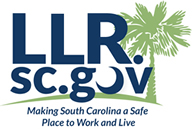Hello REALTORS®,
The SC General Assembly wrapped up the main part of their work last week and adjourned. They’ll come back in a couple of weeks to deal with vetoes by the Governor and to adopt the final version of the budget, among other things.
About the SC Legislative Session
2025 was the first half of a two-year legislative session. The legislative session begins on the second Tuesday in January and ends on the second Thursday of May of each year, although the session is often extended by agreement of the House and the Senate (as it has this year).
The two-year session begins in the year following General Elections, which are held in the even years. The full House runs for two-year terms and the full Senate runs for four-year terms. Both the House and the Senate were on the ballot in 2024.
Any legislation introduced during the two-year legislative session must be enacted by the end of that session, or it must be reintroduced and go through the legislative process again.
What Happened During the 2025 Legislative Session?
Your Association of REALTORS® has several issues on its advocacy agenda this year. One bill passed already. We also monitored and lobbied other bills. It’s important to note that some of our most important advocacy wins are the ones that don’t pass (and that we sometimes don’t talk about).
- Continuing Education Requirements for Nonresident Licensees (H.3947)—ENACTED. This bill allows nonresident brokers and associates licensed in other states to receive credit for continuing education they receive in other states. It also helps facilitate reciprocal continuing education credits for South Carolina brokers and associates who hold licenses in other states. Governor Henry McMaster signed the bill into law on May 8.
- PE Septic Soil Evaluations (H.3950)— Passed the House. This bill allows licensed Professional Engineers with additional training and certification to perform soil evaluations on conventional septic systems. The bill has been referred to the Senate Labor, Commerce, and Industry Committee, which is expected to consider the legislation in the second half of the legislative session in 2026.
- Domestic Violence in Rental Properties (H.3569)—Passed the House. The bill allows protected tenants to terminate a lease, without penalty, in certain circumstances. The Senate Judiciary Committee gave the bill its favorable recommendation. The full Senate will consider the bill next.
- Property Tax Assessment Ratios (H.3841)—Passed the House. The bill allows an owner-occupied property to continue to be assessed at the 4% assessment ratio until the end of the calendar year after the owner’s estate has been settled. The bill has been referred to the Senate Finance Committee.
- Unlawful Occupants of Property (Squatters) (H.3387)—Passed the House. The bill will make it easier for property owners to remove squatters from their property. The bill has been referred to the Senate Judiciary Committee.
- Small Business Regulatory Freedom Act (H.3021)—Passed the House. The bill will reduce regulatory burdens by requiring a 25% reduction in total regulations, prohibiting agencies from enacting new regulations without explicit statutory authority, and mandating that for every new regulation, two existing rules must be eliminated. The bill also introduces periodic reviews, automatic expiration dates for regulations, and assessment reports for proposed rules. The bill has been referred to the Senate Judiciary Committee.
- HOA Foreclosures (H.3447)—Passed the House. The bill protects consumers by providing reasonable notice requirements, and a court hearing, before a HOA can foreclose. The bill has been assigned to the Senate Judiciary Committee. Additional HOA reform is also part of the REALTOR® Advocacy Agenda.
- Low Income Housing Tax Credits (LIHTC) (S.125)—Passed the Senate. The bill provides a property tax exemption for nonprofit housing corporations based on economic ownership percentages and requires certification/rent records to be submitted to the Department of Revenue every year to verify eligibility for the credit. The bill has been assigned to the House Ways and Means Committee.
Protecting the rights of property owners with short-term rentals, and prohibiting local government from banning rental of private property to short-term guests, also are part of the REALTOR® Advocacy Agenda. Two bills have been introduced: H.3861 and S.442.
A lot of work went into getting the SC REALTOR® Advocacy Agenda to this point. The SCR Advocacy Team, led by Lindsay Jackson Hutto and Austin Smallwood, worked hard for you this legislative session to get these results, but they still have work to do as they continue to discuss these bills with legislators in the next several months.
Realtors Go to Washington
Now that the SC General Assembly has adjourned, our advocacy focus turns to Washington, DC, June 2-4. Thousands of Realtors, including many from the Western Upstate, will travel to Washington to support the National REALTOR® Advocacy Agenda. I’ll report on that next week.
Support RPAC
RPAC is an important element of your Realtors Association’s advocacy program. I encourage you to support RPAC, and we make it easy to do so—we include a voluntary RPAC contribution on your annual dues renewal. Simply pay it and you have support RPAC. If you want to do more that modest amount, that’s easy too.
Michael Dey, Director of Government Affairs



